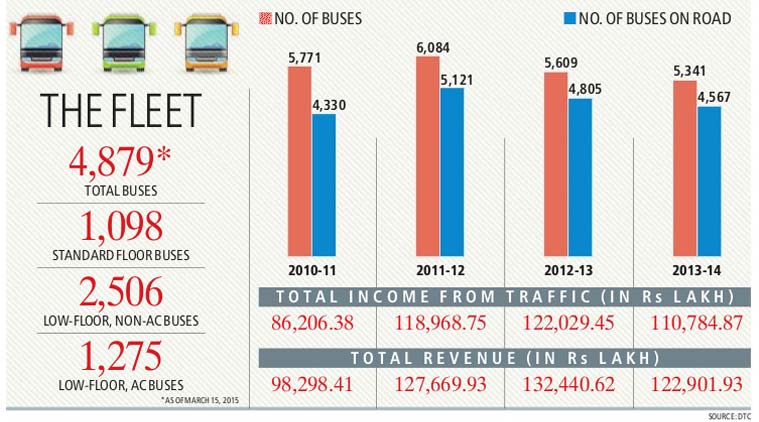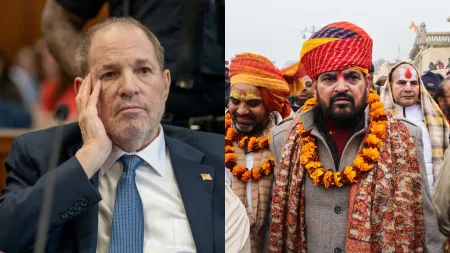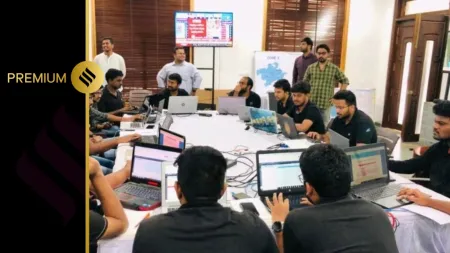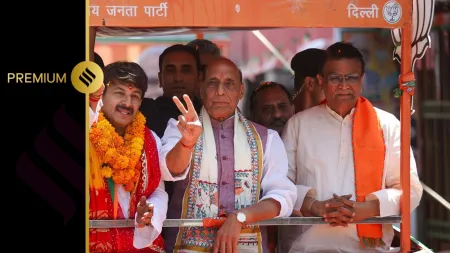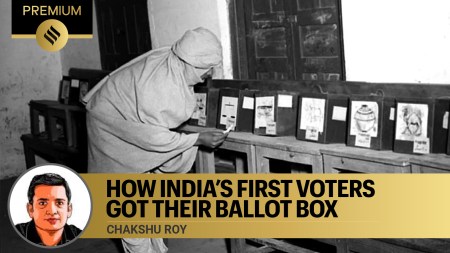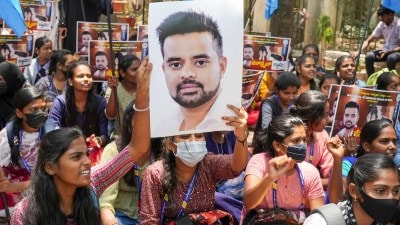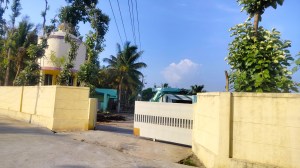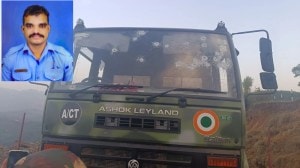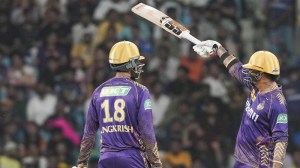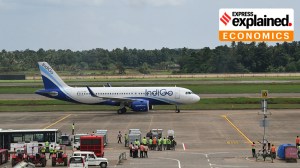- India
- International
Hard Look: Bumpy Bus Ride
The AAP government has promised to add about 5,000 buses to Delhi’s roads and expand bus routes.
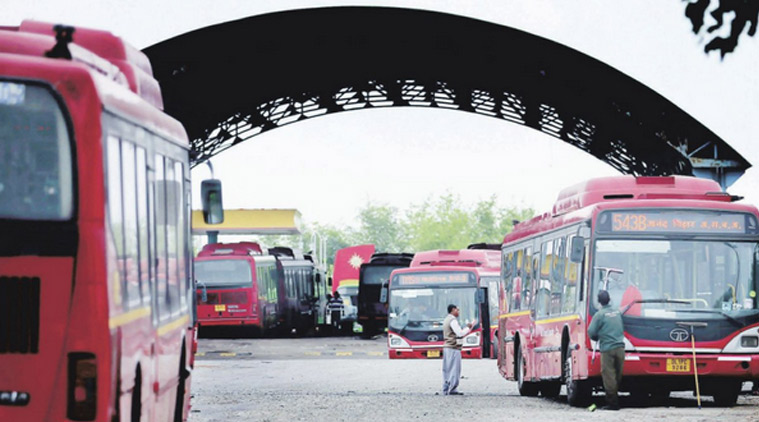 Currently, the DTC runs 4,879 buses in Delhi. Of these, 1,098 are standard floor buses, 2,506 low-floor, non-AC buses and 1,275 low-floor, AC buses.
Currently, the DTC runs 4,879 buses in Delhi. Of these, 1,098 are standard floor buses, 2,506 low-floor, non-AC buses and 1,275 low-floor, AC buses.
When a fire gutted 17 Delhi Transport Corporation (DTC) buses in January, it ate into an already shrinking fleet. Then a mob went on the rampage last Friday at Khanpur in South Delhi, torching one bus and damaging 12 others after a 12-year-old boy was crushed by a public bus. The shortfall in the fleet just got worse.
While private player Tata Motors and the DTC negotiate the terms of an annual maintenance contract (AMC) that has become the main hurdle in the way of the corporation procuring 1,380 new buses, city commuters’ wait for a bus is nowhere near getting shorter.
It has been a year since the DTC is waiting to acquire the semi-low floor buses. But commuters’ inconvenience is not the only reason as to why the corporation needs to put more buses on the roads quickly.
Each year, the DTC scraps buses that turn 15 years old. In 2010-2011, the DTC had a fleet of 5,771 buses. That number dipped to 5,341 in 2013-14. “The reason for that is, the corporation cannot use buses that are more than 15 years old. This is the norm and the National Green Tribunal has also ordered all vehicles older than 15 years to be taken off Delhi’s roads,” a DTC official said.
Currently, the DTC runs 4,879 buses in Delhi. Of these, 1,098 are standard floor buses, 2,506 low-floor, non-AC buses and 1,275 low-floor, AC buses.

The fleet shrunk after 17 low-floor, AC buses were gutted in a fire at the Ambedkar Nagar bus depot on January 1. DTC officials said a committee was appointed to examine the scene and find out what caused the fire. So far, the committee has carried out a preliminary site inspection. Meanwhile, the gutted buses are yet to be replaced.
The Aam Aadmi Party government, which took charge in February, has promised to add about 5,000 buses to Delhi’s roads and expand bus routes.
Officials said the Transport department in 2010 estimated that the city needs 11,000 buses, of which 50 per cent were to be run by private players; the rest by the DTC. Despite the expansion of other means of public transport, especially the Delhi Metro, DTC officials feel the capital will need at least 15,000 buses to meet the requirements of its commuters as the reach of the public transport widens.
Although the DTC has issued tenders to procure 1,380 new buses, the process has been deadlocked over the terms of the AMC. The corporation is still negotiating the terms with Tata Motors, the sole bidder.
The government, led by Chief Minister Arvind Kejriwal, wants to improve bus connectivity in rural parts of Delhi. While the old standard floor buses may not be eyesome, they cannot be completely phased out if more buses have to be pressed into service in rural areas.
“Many roads in rural areas are not easily motorable. The low-floor buses with a floor height of 390 mm may not be able to ply on these roads. Hence, standard floor buses with a floor height of 900 mm will have to be used in these parts,” a DTC official said.
MAINTENANCE CONTRACT
Under the DTC’s annual maintenance contract, keeping the buses roadworthy is the responsibility of the manufacturer. Under the earlier contract, the manufacturer had to maintain the bus clocking 7.5 lakh km up to 12 years, but now it has been changed to a run of 6 lakh km up to 10 years. DTC officials said under the rates decided in 2009, the manufacturers charged Rs 3.20 per km for the first year, at an annual increase of roughly 10 per cent; the rates went up to Rs 18.75 per km in the 12th year.
“The AMC rates that the manufacturer is quoting are significantly higher. We know that the costs incurred are not so high and, hence, we are not willing to pay the amount quoted by them. Talks are under way. There is no way we can pay the charges demanded by them,” a DTC official said.
The maintenance contract, the source of discord between the government and Tata Motors, is central to the procurement of buses. This is because, DTC says, frequent breakdown of buses not only disrupts services and hassles commuters, but also causes losses of up to Rs 2 crore daily.
“On an average, 200 buses break down every day. Every breakdown costs about Rs 2,000 to the corporation. There is a penalty clause in the AMC and we recover the charges from the manufacturer,” an official said.
The DTC, he added, cannot shoulder the responsibility of maintaining the buses for many reasons. “Our staff does the job of supervising maintenance. If we have to engage our staff for maintenance, it would stretch our finances. The staff will have to be paid wages. The wages cannot be less than the minimum prescribed. Also, our staff will retire and the process of appointing new staff will have to be continuous. Hence, even if the government engages its own staff for maintenance, it will have to be contractual staff. This is not a feasible idea,” he said.
Besides, the official said in order to resolve maintenance issues, it was important that a technical team regularly inspected the buses.
PARKING SPACE
DTC said the Delhi Development Authority (DDA) had allocated additional land to the corporation to tackle its parking woes. “The DDA has given us a 20-acre plot in Rani Khera in Northwest Delhi to build a depot for 400 buses. There are encroachments on about one acre of land that will have to be removed. To start with, we will park 150 buses in this depot,” a DTC official said.
In addition, the official said a nine-acre plot had been given to the DTC in Sarai Kale Khan. “On this plot, we want to construct a multi-storey depot that will accommodate 200-250 buses. But this will take at least a year-and-a-half to be completed,” he said.
Another 14-acre plot has been identified for a depot in Karkari Morh.
SAFETY FIRST
In the backdrop of the December 16, 2012 gangrape of a physiotherapy student on a moving bus in South Delhi, the then Chief Minister Sheila Dikshit had announced 85 night bus services. “The services continue till date. Two home guards are deployed on every bus,” a DTC official said.
In August 2014, the DTC undertook a pilot project on 200 of its buses by installing CCTV cameras inside them. The corporation took the step to check crimes against women or even petty thefts on public buses. The CCTV cameras can store up to 15 days of footage.
May 06: Latest News
- 01
- 02
- 03
- 04
- 05


